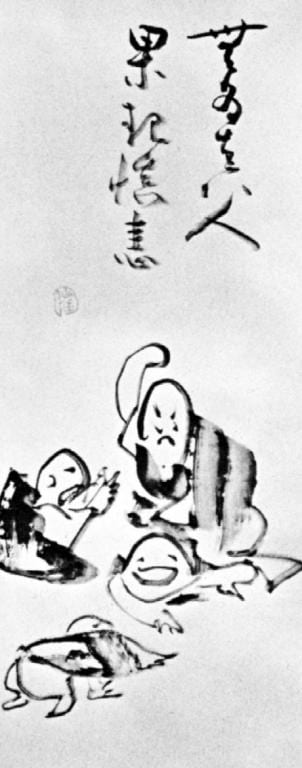Hanukkah is an interesting holiday. One the rabbis quite correctly have always felt more than ambivalent about, but also one people just love.
I reflect on this celebration of light every couple of years. So parts that follow are repeats, parts are new discoveries I find I make each time I consider the mystery of the transformed story.
Without a doubt the rabbis had to work it. The original is messy. But, the new version is astonishingly inspirational. The story of a fundamentalist uprising and their pyrrhic victory is turned into a meditation on light and faith.
Good things. Powerful things. True things.
And as I thought about this one thing led to another, and, well…
A psychic once declared I had been a rabbi in a very recent incarnation. But my Jewish friends are pretty clear that I am in fact about as goyish as one can be. My smattering of Yiddish expressions, nearly all learned during my time in a Zen Buddhist monastery, are also nearly all mispronounced, and on occasion exist only in the general vicinity of correct usage. And even my read of the Hebrew scriptures is all washed through my Baptist upbringing, or in reaction to it.
The gaps in my knowledge of Judaism are big enough to drive starships through…
And so it didn’t really come as a surprise when I recently discovered the famous line about Rabbi Hillel proclaiming the Torah while standing on one foot, “Do not do to your neighbor what is hateful to you. Everything else is commentary” is only part of a larger story.
Turns out the person who asked the question of the good rabbi, actually asked it of another rabbi first. When asked about what could be said of the Torah while standing on one foot, perhaps an ancient version of what we sometimes call “an elevator speech,” Rabbi Shammai had quite a different response than Hillel.
The story is preserved in the Talmud as Shabbat 31a. It begins:
“A certain heathen came to Rabbi Shammai saying ‘You can convert me if you can summarize the Torah while I stand on one foot.’ The rabbi beat him with a measuring stick.”
I actually didn’t get it was a “heathen” who asked the question before, either. So, someone in quest for truth, perhaps even more than a birthright person looking for clarity. A seeker is asking. Yearning. Hoping. Longing.
And he gets his beating.
It is only after this the heathen goes to Hillel. The commentaries add in the emotions for these encounters. Shammai was angry while Hillel was patient. And the meaning of it all flows on from there.
However, as a Zen person I can read this anecdote quite a bit differently. Especially if you strip out the emotions of the two moments.
Hillel’s response is lovely. It is a calling to the one teaching that seems truly to be universal to our human condition. The Golden Rule seems to draw from places deep in our human hearts. If anything can be said to be engraved on our hearts, it is probably this sense of fundamental fairness. Pretty much all ethics, even the structures of government can flow from this deep intuition.
But then there’s that smack with a ruler.
On the Zen way, rebuke is often used as praise. And apparent non sequiturs, including sharp yells and the odd strike with hand or with some object at hand, are used to answer essentially the same question. What is the Torah? What is the meaning of Bodhidharma coming from the West?
To put it plainly: What is true?
Why does the world and my heart hurt? What is meaning of suffering? Why is the world so beautiful? Why does it all pass so quickly?
What heals the heart? What heals the world?
Here we might find ourselves drawn to the mysteries of the intimate. Even more powerful than that most powerful call of equity and care.
The sages proclaim, just this.
Talk about the shamash. Worthless. To no purpose.
The law and the prophets. The teaching of the Buddhas. The good news.
When we let go of our analysis, only for a second, if we let go of what we know, if only for a heartbeat. If we just meet that strike with the ruler without judgment or expectation.
You know, here. Just here.
This is what the sages call us to.
Find the right eyes, and heaven is right here. The Pure Land.
This place.
The rest, as they say, is commentary…













